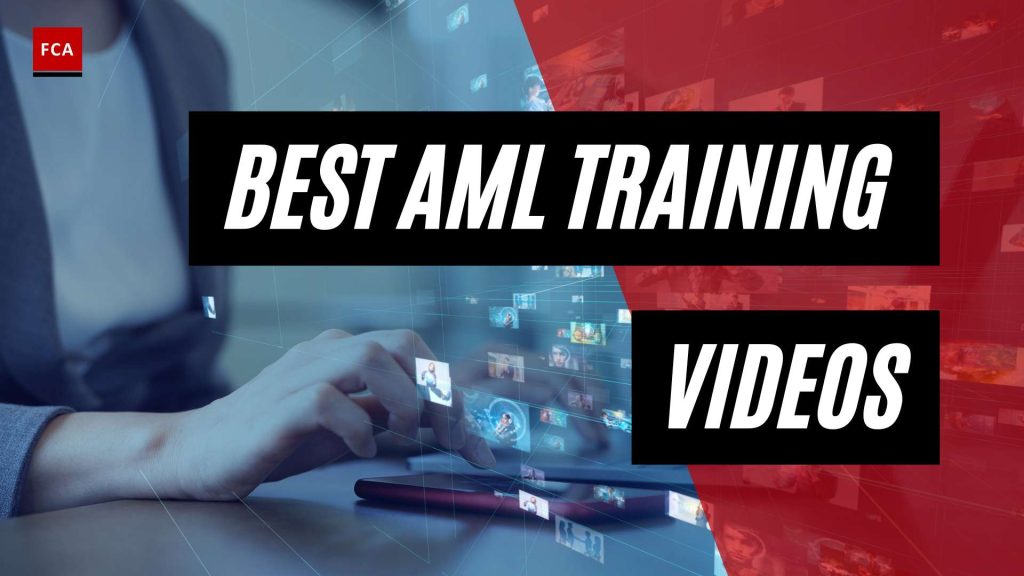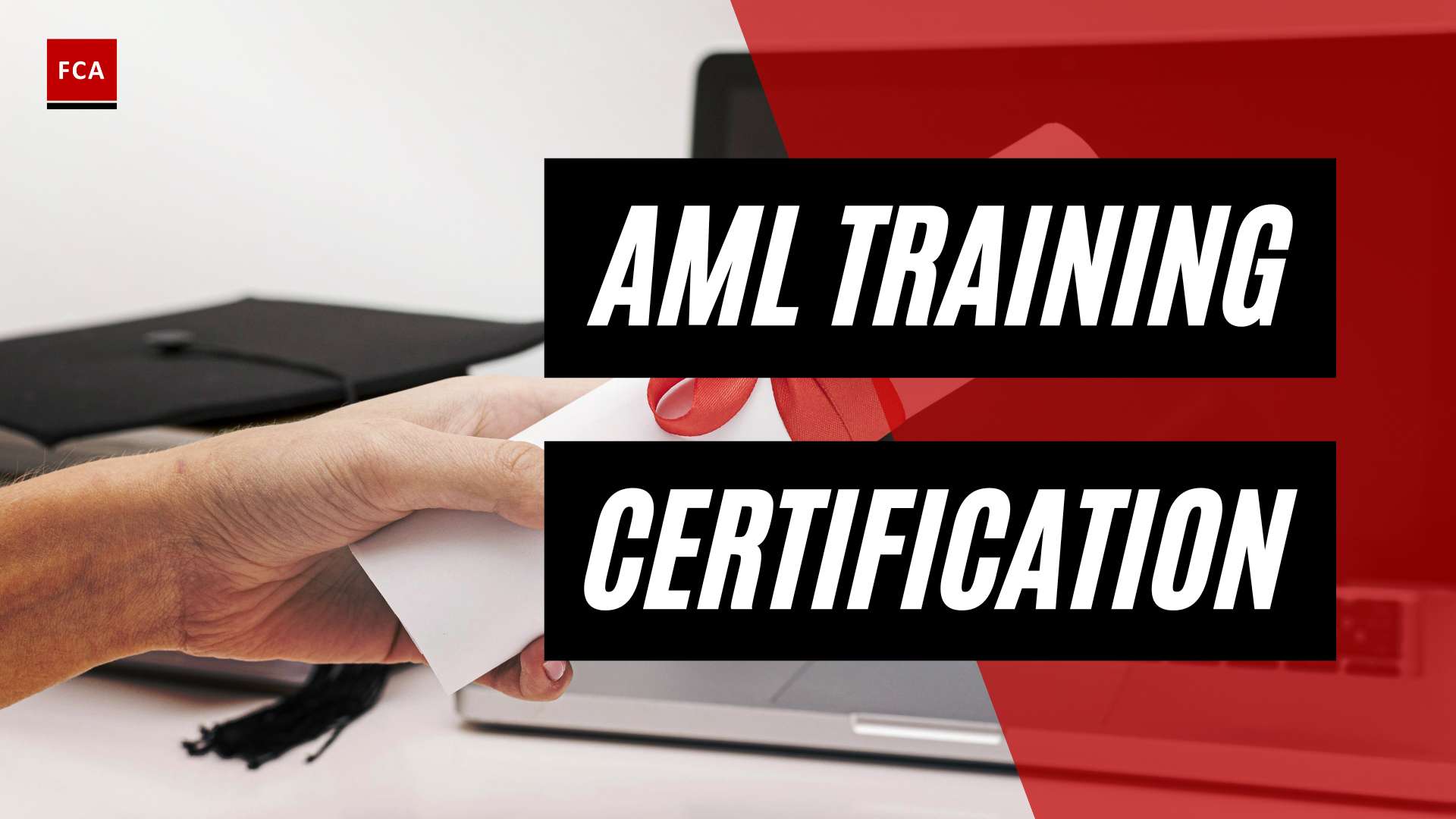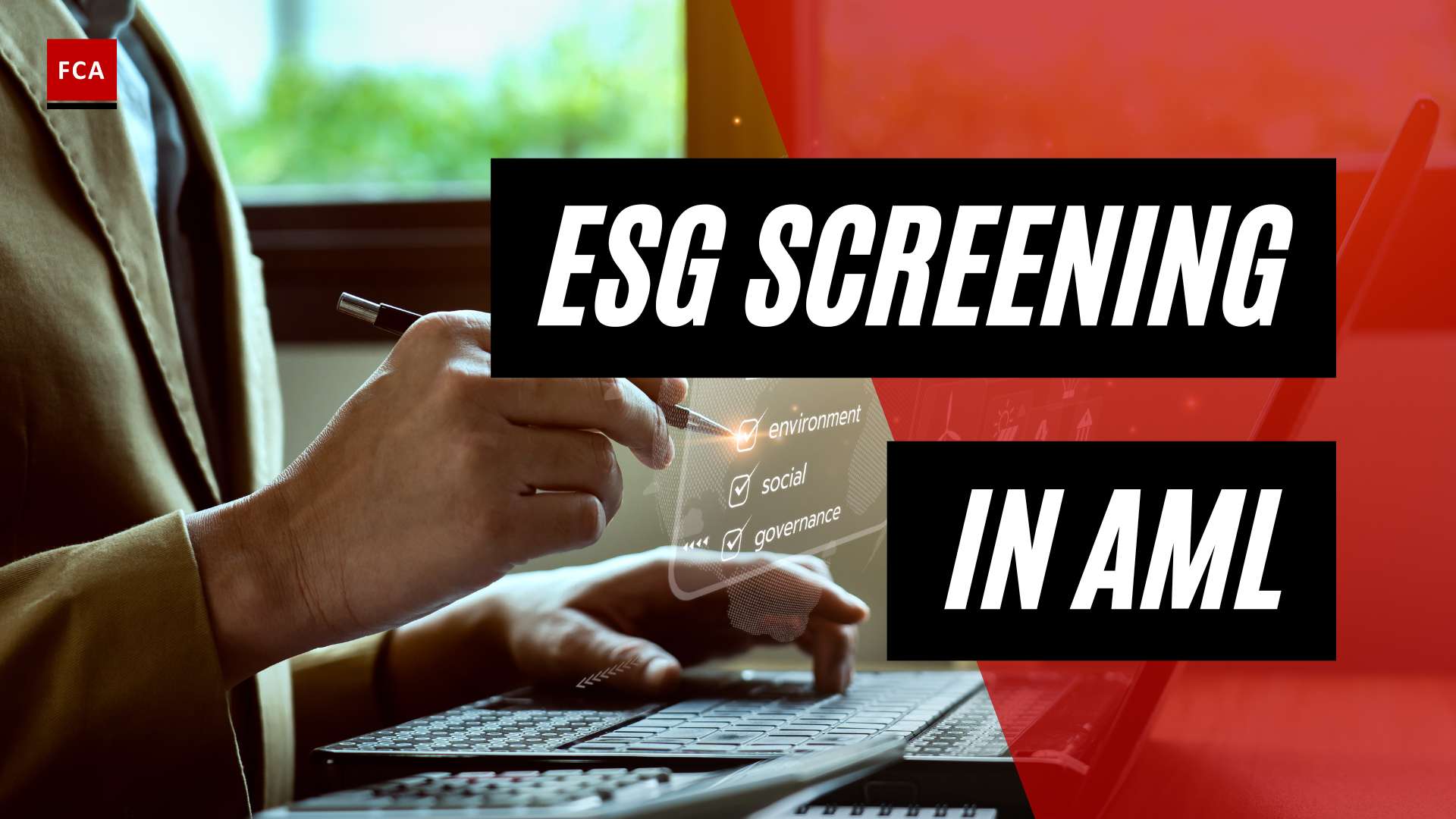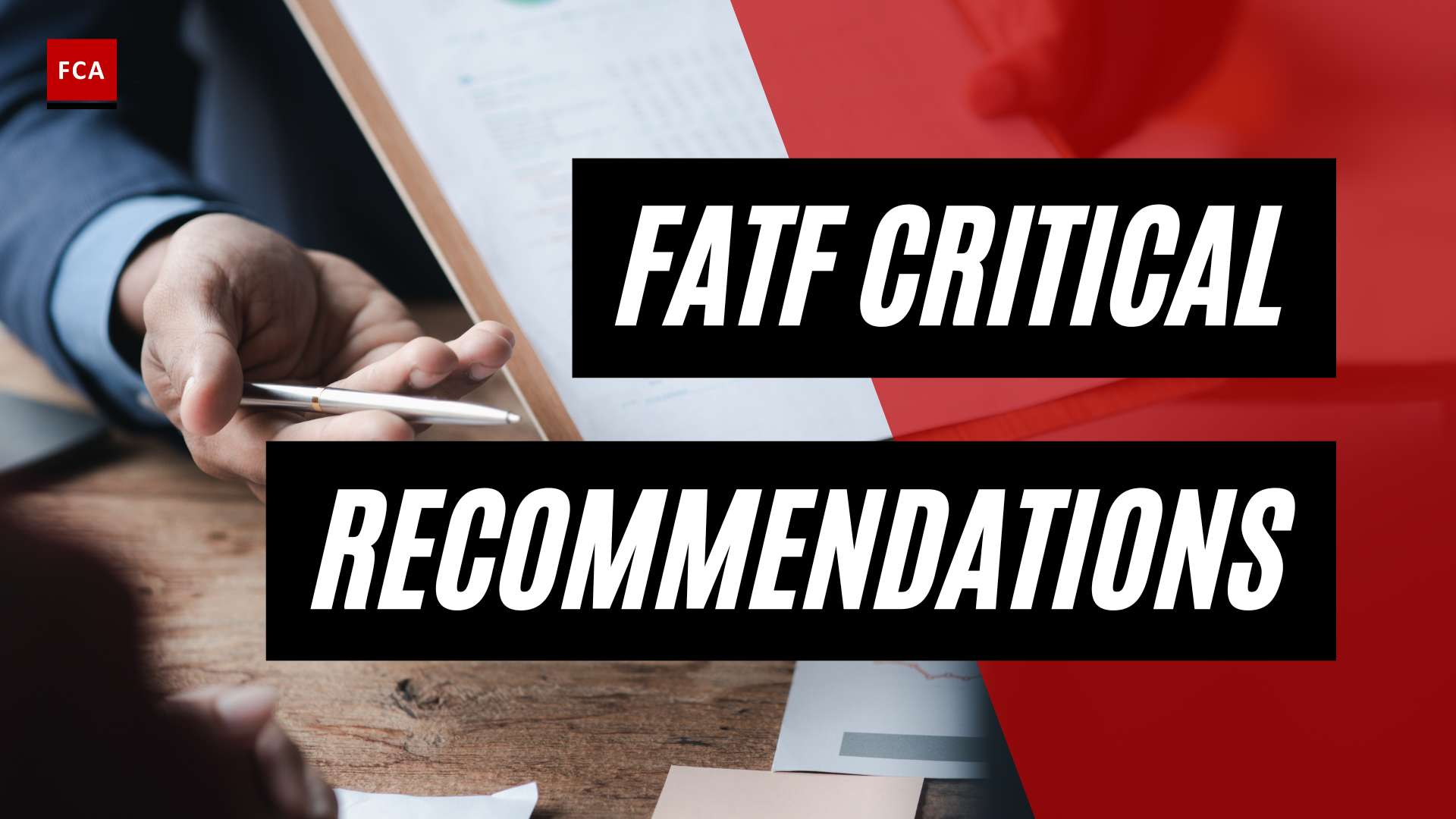AML Training for Employees
In the realm of anti-money laundering (AML) compliance, providing comprehensive training to employees is crucial. AML training equips individuals with the knowledge and skills necessary to identify potential money laundering activities, understand regulatory requirements, and respond appropriately. This section will explore the importance of AML training and the regulatory requirements surrounding it.
Importance of AML Training
A robust AML training program is vital for ensuring that employees understand AML requirements, recognize signs of money laundering, and know how to respond effectively. Training should be tailored to the roles and responsibilities of individuals within the organization, enabling them to fulfill their obligations in preventing financial crimes. By fostering a culture of compliance, AML training helps mitigate the risk of money laundering and protects organizations from potential legal and reputational harm.
AML training also plays a crucial role in promoting awareness and vigilance among employees. By educating individuals about the methods and techniques used by money launderers, organizations can empower their workforce to proactively identify and report suspicious activities. This proactive approach strengthens the overall AML compliance framework and enhances the organization’s ability to combat financial crimes.
It is important to regularly update AML training programs to reflect changes in AML regulations and industry trends. By staying up-to-date with the evolving landscape of financial crimes, organizations can ensure that their employees are equipped with the most current knowledge and best practices in AML compliance.
Regulatory Requirements for AML Training
Regulatory bodies around the world have recognized the importance of AML training and have implemented requirements to ensure that organizations maintain adequate training programs. These requirements vary across jurisdictions, but they generally mandate that financial institutions and other regulated entities provide AML training to their employees.
For example, the Financial Action Task Force (FATF), an international standard-setting body, emphasizes the need for AML training in its recommendations. The FATF recommends that organizations provide training to employees on their AML obligations and the detection and reporting of suspicious transactions.
In addition to international standards, specific regulatory bodies in different countries impose their own AML training requirements. These requirements may include the frequency of training, the scope of topics covered, and the documentation of training records. It is essential for organizations to adhere to these regulatory requirements and ensure that their AML training programs are in line with the expectations of the relevant authorities.
By meeting regulatory requirements and implementing comprehensive AML training programs, organizations can demonstrate their commitment to fighting financial crimes, protect their reputation, and contribute to the overall integrity of the global financial system.
As organizations seek to provide effective AML training to their employees, incorporating AML training videos can offer various benefits. The next section will delve into the advantages of using AML training videos, including customization options, cost-effectiveness, and employee engagement.
AML Training Programs
To ensure compliance with Anti-Money Laundering (AML) regulations, it is crucial for professionals working in risk management, compliance, and anti-financial crime to undergo proper AML training. Several comprehensive AML training programs are available, including the BSA Basics Training Program, BSA Bootcamp! A Foundational BSA/AML Class, and BSA/AML Training for the Board of Directors.
BSA Basics Training Program
The BSA Basics Training Program is an essential training course offered by The Compliance Cohort. This program provides a higher-level overview of BSA/AML program requirements for banks and credit unions. In just over an hour, participants gain a quick and efficient understanding of BSA rules and regulations. The program is designed to meet the needs of BSA officers and staff, ensuring they receive the necessary training efficiently.
BSA Bootcamp! A Foundational BSA/AML Class
For a more comprehensive understanding of BSA rules and regulations, professionals can opt for the BSA Bootcamp! A Foundational BSA/AML Class offered by The Compliance Cohort. This online course delves deep into the core elements of BSA rules over approximately 3.5 hours. Participants will gain insights into the origins of BSA rules, the importance of risk management, the five pillars of BSA, key areas of a BSA/AML program, and practical tips for managing a BSA program.
BSA/AML Training for the Board of Directors
Board members have a critical role in overseeing an institution’s compliance efforts, including AML. The BSA/AML Training for the Board of Directors program, also provided by The Compliance Cohort, is specifically tailored to meet their needs. This specialized program equips board members with the necessary knowledge and understanding of BSA/AML regulations. With this training, board members can effectively fulfill their role in overseeing an institution’s compliance efforts.
By participating in these comprehensive AML training programs, professionals can enhance their knowledge and understanding of AML regulations, risk management, and compliance. These programs offer a virtual classroom approach, allowing participants to access the training at their convenience. With a strong foundation in AML training, professionals can contribute to effective AML compliance within their organizations.
Features of AML Training Programs
When considering AML training programs for employees, it is essential to assess various features to ensure comprehensive and effective training. Here are some key aspects to consider:
Duration and Format of Training
The duration and format of AML training programs can vary depending on the provider and the specific needs of your organization. Some programs offer shorter, focused sessions, while others provide more comprehensive courses. For example, the Compliance Cohort offers three different BSA/AML video training programs: BSA Basics, BSA Bootcamp! A Foundational BSA/AML Class, and BSA/AML Training for the Board of Directors. The duration of these programs ranges from just over an hour to approximately 3.5 hours (Compliance Cohort).
It’s important to consider the time available for training and the level of detail required for your employees. Shorter sessions may be suitable for refresher training, while longer programs may be necessary for in-depth education on AML compliance.
Training Materials and Resources
The availability of comprehensive training materials and resources is crucial for effective AML training. Look for programs that provide accompanying manuals, videos, or other educational materials that enhance the learning experience.
For example, the Compliance Cohort’s BSA Bootcamp! program includes a comprehensive manual and three training videos. This combination of written and visual resources helps learners better understand complex concepts and provides practical examples and case studies (Compliance Cohort). The inclusion of real-life scenarios can facilitate a deeper understanding of AML compliance principles.
Access and Satisfaction Guarantee
Accessibility and learner satisfaction are important considerations for AML training programs. Ensure that the training program you choose provides convenient access to the training materials and resources. The Compliance Cohort offers 60-day access to the online classes and provides an electronic version of the accompanying manual for learners to keep (Compliance Cohort).
To further instill confidence in the training program, the Compliance Cohort offers a 100% money-back guarantee if learners are not satisfied within the first 10 business days after purchase. This guarantee demonstrates the provider’s commitment to delivering quality training and ensures learners’ investment is protected.
When selecting an AML training program, consider the duration and format of the training, the availability of comprehensive training materials and resources, and the accessibility and satisfaction guarantee provided by the training provider. By choosing a program that meets these criteria, you can provide your employees with effective AML training that enhances their knowledge and skills in combating money laundering and financial crimes.
AML Training Videos
In the realm of AML compliance, training employees on Anti-Money Laundering (AML) regulations is of utmost importance. AML training videos play a significant role in educating employees and ensuring adherence to these regulations. Let’s explore the benefits of using AML training videos, their customization and tailoring options, as well as their cost-effectiveness and impact on employee engagement.
Benefits of AML Training Videos
AML training videos offer several advantages in the realm of employee education and compliance. These videos provide a convenient and accessible medium for delivering AML training content. By utilizing visual and auditory elements, they enhance comprehension and retention of essential AML concepts. Employees can grasp complex topics more easily when presented in an engaging and easy-to-understand format.
Additionally, AML training videos allow employees to learn at their own pace and convenience. They can be accessed anytime, anywhere, making them an ideal choice for organizations with remote or geographically dispersed teams. This flexibility ensures that employees receive consistent and standardized training, regardless of their location or work schedules.
Customization and Tailoring
One of the significant advantages of AML training videos is their flexibility in customization and tailoring. Organizations can customize the content of the videos to align with their specific AML compliance program, incorporating internal policies, procedures, and case studies relevant to their industry or jurisdiction.
Customization also allows organizations to address specific training needs and focus on the areas that are most relevant to their employees. By tailoring the content, organizations can ensure that the training videos are engaging, relatable, and resonate with their employees’ roles and responsibilities.
Cost-effectiveness and Employee Engagement
Using AML training videos can be a cost-effective solution for organizations. They eliminate the need for in-person training sessions, which can be time-consuming and costly to arrange. AML training videos provide a scalable solution, enabling organizations to train a large number of employees simultaneously and consistently.
Moreover, AML training videos have proven to enhance employee engagement. The dynamic and interactive nature of videos captivates employees, enabling them to better absorb the information. By presenting AML concepts in a visually appealing and engaging format, organizations can foster a culture of compliance and increase employees’ motivation to actively participate in AML initiatives.
By incorporating AML training videos into their compliance training programs, organizations can reinforce AML policies and procedures, ensuring employees stay up-to-date with the latest regulatory requirements and best practices in the fight against financial crimes.
To discover more about AML training options, explore our articles on aml training online, aml training requirements, and aml training program.
AML Training Providers
To ensure comprehensive and effective AML training, it’s important to choose the right training provider. Several reputable organizations offer AML training programs designed to meet the needs of professionals working in compliance, risk management, anti-money laundering, and anti-financial crime. Let’s explore three noteworthy AML training providers: The Compliance Cohort, The AML Training Academy and Advisory LLC, and the LIMRA AML Program.
The Compliance Cohort
The Compliance Cohort is a trusted provider of AML training programs, offering three different BSA/AML video training programs: BSA Basics, BSA Bootcamp! A Foundational BSA/AML Class, and BSA/AML Training for the Board of Directors. These programs provide comprehensive training through a virtual classroom approach, ensuring that participants receive the knowledge and skills necessary to fulfill their AML obligations. The Compliance Cohort’s training programs are designed to be engaging, informative, and tailored to the needs of financial institutions and their employees. For more information, you can visit their website here.
The AML Training Academy and Advisory LLC
The AML Training Academy and Advisory LLC is a globally recognized provider of AML training and advisory services. Led by Kevin Sullivan, CAMS, who has over 30 years of experience in the AML field, the academy offers customized training programs that can be delivered through live in-house webinars or in-person seminars. Kevin Sullivan, an author and instructor of CAMS exam prep courses, has provided training to various financial institutions, regulators, government agencies, and law enforcement globally. The AML Training Academy and Advisory LLC’s training programs aim to enhance retention and provide a higher value to clients. For more information, you can visit their LinkedIn profile here.
LIMRA AML Program
The LIMRA AML Program is another reputable provider of AML training courses. They offer AML courses in both English and Spanish, with a new refresher course created annually to ensure employees stay informed on recognizing and preventing money laundering. The LIMRA AML Program’s courses are designed to provide comprehensive coverage of AML topics and meet regulatory requirements. Pricing for their training is scaled by volume, and individuals can seek further assistance by contacting CFM Partners’ Help Desk at (866) 364-2380 or [email protected]. For more details about the LIMRA AML Program, you can visit their website here.
By selecting a reputable AML training provider like The Compliance Cohort, The AML Training Academy and Advisory LLC, or the LIMRA AML Program, organizations can ensure that their employees receive high-quality training that meets regulatory requirements and enhances their knowledge in combating money laundering and financial crimes. It is essential to choose a provider that aligns with the specific needs and goals of the organization, ensuring a successful AML training program implementation.
AML Training Guidelines for Real Estate Professionals
Real estate professionals have a crucial role to play in combating money laundering and ensuring compliance with anti-money laundering (AML) regulations. It is important for real estate professionals to understand their AML obligations and take necessary steps to mitigate the risk of money laundering in their transactions.
Understanding AML Obligations
The Real Estate Council of British Columbia (RECBC) has developed an Anti-Money Laundering Guideline to provide guidance to real estate professionals in understanding their AML obligations. This guideline helps professionals navigate the requirements, including reporting suspected money laundering activities, when working with clients and unrepresented parties (BCFSA).
Real estate professionals should familiarize themselves with the AML regulations applicable in their jurisdiction and understand the reporting obligations, record-keeping requirements, and due diligence measures they are expected to adhere to. By having a clear understanding of their AML obligations, professionals can better identify and address potential money laundering risks in real estate transactions.
Utilizing Land Ownership Transparency Registry (LOTR)
The Land Ownership Transparency Registry (LOTR) is a valuable tool available to real estate professionals in meeting their AML obligations. In British Columbia, LOTR became publicly searchable on April 30, 2021, providing professionals with a means to verify the ownership of properties and identify potential risks related to money laundering (BCFSA).
When working with clients, real estate professionals are advised by the RECBC to perform a LOTR search before entering into a buyer’s agency agreement or writing an offer. It is also recommended to perform a title search and LOTR search on seller clients and their properties before entering into a listing agreement. These searches can help professionals gather relevant information and assess any potential red flags associated with the property or parties involved.
Demonstrating AML Requirements to Clients
Real estate professionals have a responsibility to educate their clients about the AML requirements and the importance of complying with them. The RECBC offers a video that demonstrates how real estate professionals can discuss the new AML requirements with their clients. By explaining the purpose and significance of AML regulations, professionals can foster transparency, promote compliance, and enhance the overall integrity of the real estate industry (BCFSA).
Real estate professionals should emphasize the importance of providing accurate and complete information during transactions, as well as the need to cooperate with AML measures. By engaging in open and honest conversations with clients, professionals can help build awareness and ensure that all parties involved understand their roles and responsibilities in preventing money laundering.
As regulatory requirements for the real estate sector evolve, it is crucial for professionals to stay updated and vigilant in meeting their AML obligations. By understanding the AML guidelines, utilizing tools like LOTR, and effectively communicating AML requirements to clients, real estate professionals can contribute to a stronger AML framework and foster a more secure real estate environment.
New Regulatory Requirements for Real Estate Sector
In response to the growing concerns of money laundering in the real estate sector, British Columbia (BC) and Canada have introduced new regulatory requirements effective from June 1, 2021. These regulations aim to combat money laundering and emphasize the need for real estate professionals to be vigilant in meeting their anti-money laundering (AML) obligations (BCFSA).
BC and Canada’s AML Regulatory Requirements
The Real Estate Council of British Columbia (RECBC) has developed a new Anti-Money Laundering Guideline to assist real estate professionals in understanding their AML obligations. This guideline provides guidance on various aspects of AML compliance, including reporting suspected money laundering activities when working with clients and unrepresented parties (BCFSA).
One of the key tools introduced to support AML requirements in BC is the Land Ownership Transparency Registry (LOTR). LOTR became publicly searchable on April 30, 2021, and provides real estate professionals with a valuable resource for meeting their AML obligations. It is recommended by RECBC to perform a LOTR search on a buyer client before entering into a buyer’s agency agreement or writing an offer. Additionally, performing a title search and LOTR search on seller clients and their property when entering into a listing agreement is also advised (BCFSA).
To help real estate professionals understand and comply with these new AML requirements, the Real Estate Council of British Columbia offers a video that demonstrates how they can discuss the new AML requirements with their clients. This video serves as a valuable resource for ensuring compliance and fostering transparency in real estate transactions.
Vigilance in Meeting AML Obligations
With the introduction of these new regulatory requirements, real estate professionals must be vigilant in meeting their AML obligations. This includes conducting thorough due diligence, performing necessary searches, and reporting any suspicious activities to the appropriate authorities. By doing so, they contribute to the collective effort to combat money laundering and protect the integrity of the real estate sector.
Staying updated on AML regulations and guidelines is crucial for real estate professionals. It is recommended to seek additional training and education in AML compliance to ensure a thorough understanding of the requirements and best practices. AML training programs, such as those offered by leading providers like The Compliance Cohort, The AML Training Academy and Advisory LLC, and LIMRA AML Program, can equip professionals with the necessary knowledge and skills to navigate the complexities of AML compliance in the real estate sector.
By adhering to the new AML regulatory requirements and maintaining a proactive approach to compliance, real estate professionals play a vital role in safeguarding the industry against money laundering activities and maintaining its integrity.








